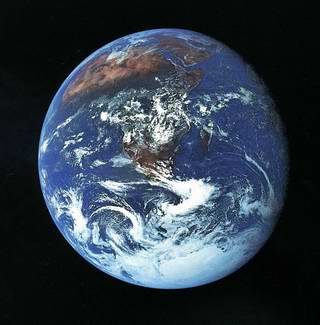Dear Gramps,
I am having difficulty with the teaching that God has a physical body. How can God know everything that happens everywhere, if He has a physical body, and physically, then, can only be in one place at one time?
Shane, from San Francisco, California
Dear Shane,
There are several facets to the consideration of your question. Talking about a God-our God-the great Elohim, father of the spirits of all mankind on all the worlds in our universe—
And were it possible that man could number the particles of the earth, yea, millions of earths like this, it would not be a beginning to the number of thy creations; and thy curtains are stretched out still; and yet thou art there, and thy bosom is there; and also thou art just; thou art merciful and kind forever (Moses 7:30),
who has all knowledge—
O how great the holiness of our God! For he knoweth all things, and there is not anything save he knows it (2 Ne 9:20),
we must consider in the first place that He transcends time—
The angels do not reside on a planet like this earth; But they reside in the presence of God, on a globe like a sea of glass and fire, where all things for their glory are manifest, past, present, and future, and are continually before the Lord (D&C 130:6-7).
So to say that He can be in only one place at one time, imposes a limitation to which God is not bound. The concept of time is a temporary restriction of mortality, and has a duration of only seven thousand years, at which time—
the seventh angel shall sound his trump; and he shall stand forth upon the land and upon the sea, and swear in the name of him who sitteth upon the throne, that there shall be time no longer (D&C 88:110).
A more cogent question would be, How can God possess all the infinite knowledge in the universe when, although a God, He has a mind of finite dimension? for God also has a physical body, and is indeed, a perfect man of flesh and bone. This brings us to the consideration of what would be the fundamental particle of matter. The ancient Greeks, in fact, Anaximander in 546 BC, developed the concept that the fundamental particles of the universe consist of air, earth, fire and water. That concept held sway until the beginning of the renaissance. And it wasn’t until 1922 that Nels Bohr received the Nobel prize for defining the structure of the atom. As sensing equipment became more refined the existence of sub-atomic particles was realized. By the 1950s the number of fundamental particles numbered 57!
My personal belief is that there is no fundamental particle. As sensing equipment continues to become yet more refined we will discover that every new generation of fundamental particles that are discovered are made up of yet smaller components, and this process extends infinitely into the infinitesimal!! Thus, my supposition is that God can compartmentalize information in the direction of never-ending infinitesimal size, and thus can hold and process infinite knowledge.
Gramps







